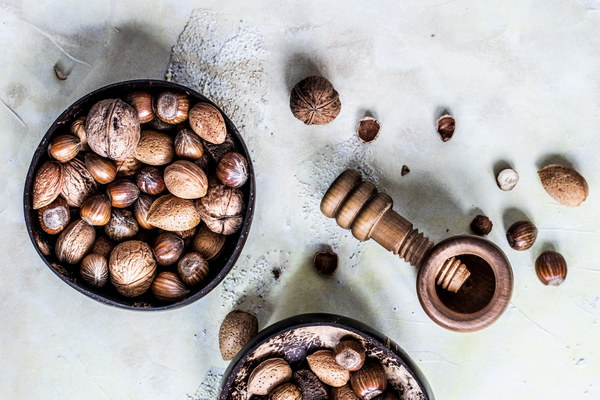The Magic of Salt Can it Really Banish Cold and Dampness
In the realm of traditional Chinese medicine, salt is not just a seasoning but a powerful ally in the fight against cold and dampness. The question arises: can salt really alleviate these common ailments? Let's delve into the science and folklore behind this intriguing topic.
The concept of cold and dampness in traditional Chinese medicine is based on the belief that these two elements can disrupt the balance of the body's Yin and Yang. Coldness is often associated with internal weakness, while dampness is linked to excess moisture in the body. Both can lead to a variety of symptoms, including fatigue, joint pain, and even digestive issues.
Salt, on the other hand, has been used for centuries in traditional medicine to combat these conditions. The reasoning behind this lies in salt's unique properties. It is believed that salt has a warming effect on the body, which can help expel coldness and dampness. Let's explore some of the ways in which salt can be used to combat these ailments.
One of the most common ways to use salt for its healing properties is through salt therapy, also known as halotherapy. This involves spending time in a salt room, where the walls, floor, and even the air are filled with salt particles. The tiny salt crystals are inhaled, absorbed through the skin, and even consumed through the tongue, all of which help to reduce inflammation and improve lung function.
Salt baths are another popular method for using salt to combat cold and dampness. Adding Epsom salt or Dead Sea salt to a warm bath can help to draw out toxins and excess moisture from the body, leaving you feeling refreshed and revitalized. Additionally, the warmth of the bath can help to increase circulation and promote overall well-being.
Salt can also be used externally to alleviate joint pain and muscle stiffness associated with cold and dampness. A salt poultice, made by mixing salt with hot water, can be applied to the affected area to reduce inflammation and stimulate blood flow. This can provide relief for those suffering from arthritis or other chronic conditions.
In addition to these external applications, salt can be consumed internally to support the body's fight against cold and dampness. Consuming a small amount of salt, such as a pinch of sea salt, with meals can help to balance the body's electrolytes and maintain a healthy pH level. This can contribute to overall well-being and help to ward off colds and dampness.
While the use of salt in traditional Chinese medicine may seem like an ancient remedy, there is some scientific evidence to support its effectiveness. Salt has been shown to have anti-inflammatory properties, which can help reduce joint pain and muscle stiffness. Additionally, salt can help regulate fluid balance in the body, which can help alleviate symptoms of dampness.

It is important to note, however, that while salt may be beneficial for some individuals, it is not a miracle cure for cold and dampness. It is essential to maintain a healthy lifestyle, including a balanced diet, regular exercise, and adequate rest, to support the body's natural defenses against these conditions.
In conclusion, the use of salt in traditional Chinese medicine for the treatment of cold and dampness is a topic that has intrigued both practitioners and laypeople alike. While there is no definitive scientific proof to confirm its effectiveness, the numerous anecdotal reports and historical evidence suggest that salt may indeed have a place in the arsenal of remedies for these common ailments. As always, it is best to consult with a healthcare professional before starting any new treatment regimen.









